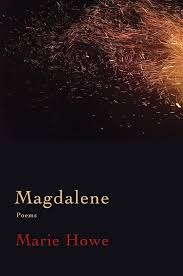
If you ask people what the top inspirations and subject matters of poetry are, they will likely guess first, love (“How do I love thee? Let me count the ways”), and second, nature (“Roses are red, violets are blue”).
Surprisingly, however, one of the most popular muses is the cruelest — death.
This came to mind yesterday when I picked up my copy of Marie Howe’s What the Living Do, an extended elegy to her younger brother John, who died of AIDS-related complications in 1989.
The collection contains snapshots of moments, both before and after his death, ones that collectively draw the reader deeper into her experiences, feelings, and self-doubts. Yes, it is love and nature, too — as all death must be — but the loss and the mystery are the drivers, the inspirations, and ultimately the beauty behind these works.
Here are two I read yesterday, the first about a dream after John’s death and the second a conversation with her brother before his death.
The Promise
by Marie Howe
In the dream I had when he came back not sick
but whole, and wearing his winter coat,
he looked at me as though he couldn’t speak, as if
there were a law against it, a membrane he couldn’t break.
His silence was what he could not
not do, like our breathing in this world, like our living,
as we do, in time.
And I told him: I’m reading all this Buddhist stuff,
and listen, we don’t die when we die. Death is an event,
a threshold we pass through. We go on and on
and into light forever.
And he looked down, and then back up at me. It was the look we’d pass
across the kitchen table when Dad was drunk again and dangerous,
the level look that wants to tell you something,
in a crowded room, something important, and can’t.
The Last Time
by Marie Howe
The last time we had dinner together in a restaurant
with white tablecloths, he leaned forward
and took my two hands in his hands and said,
I’m going to die soon. I want you to know that.
And I said, I think I do know.
And he said, What surprises me is that you don’t.
And I said, I do. And he said, What?
And I said, Know that you’re going to die.
And he said, No, I mean know that you are.
The last line of “The Promise” uses a concrete — the way close siblings learn to communicate silently with their eyes — to effectively speak to an abstract, death. What’s interesting is how she links it with secret passages of knowledge they shared in moments of high tension with an abusive father.
In “The Last Time,” death is carried from the brother to the sister to the reader. The punch comes in that last line.
The leap to a single last line after a series of couplets is a strategy that no poet takes lightly, because the lonely line, sitting in the open for emphasis, needs to be better than good if you’re going to try this strategy. Otherwise it looks like you’re trying to make something from nothing.
Two additional poems from this collection are shared in this NPR interview with Howe. If you don’t own a copy of What the Living Do, I’d say it’s in the Top Ten for poetry books you should. For reading. For rereading. And for further proof that death, for all its bad press, remains one of the most inspiring of the elusive muses.
